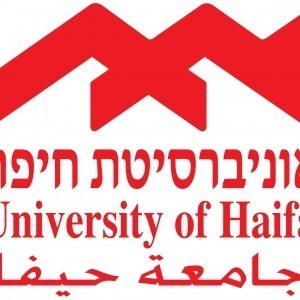Photos of university / #telavivuni
The Bachelor’s Degree in Emergency and Disaster Management at Tel Aviv University offers students a comprehensive education in the principles and practices essential for effectively responding to and managing various emergencies and disasters. The program is designed to equip students with a deep understanding of the social, technological, environmental, and organizational factors involved in disaster scenarios, preparing them for leadership roles in both governmental and non-governmental sectors. Throughout the curriculum, students explore a wide range of topics including risk assessment, crisis communication, emergency preparedness, response strategies, recovery processes, and disaster policy. The program emphasizes practical skills through simulations, drills, and collaborative projects, enabling students to develop real-world competencies necessary for managing complex emergency situations. Additionally, students gain insight into legal and ethical considerations, the role of technology in disaster management, and international standards and protocols. The faculty comprises experts with extensive experience in emergency response, homeland security, public health, and disaster research, providing students with mentorship and connections to professional networks. Graduates of the program are prepared for careers in emergency services, governmental agencies, NGOs, and international organizations, where they can contribute to enhancing community resilience, developing disaster mitigation strategies, and executing effective response initiatives. The interdisciplinary nature of the program ensures a well-rounded education, fostering critical thinking, problem-solving, and leadership skills essential for making impactful decisions under pressure. With increasing global challenges related to climate change, urbanization, and political instability, the demand for qualified disaster management professionals continues to grow, making this program a valuable investment for students committed to making a difference in crisis situations around the world.
Courses
- Introduction to Emergencies and Disaster
- Operational , Technological and Logistical – Topics in Disasters
- Public Policy
- Hazards and Natural Disasters
- Epidemiology
- Mental Health Aspects of Emergencies and Disaster Situations
- Statistics
- On Debriefing and Organizational Learning
- Leadership & Team Building
- Emerging Infectious Diseases and Bioterrorism
- Research Methods
- Introduction to CBRN
- Data Interpretation
- Risk and Crisis communication
- Data Interpretation
- Projects' Management Course in Mass Disasters and Mass Casualty Events
- Humanitarian Affairs
- Crisis Management in Organizations
- Risk and Crisis Communication Course
- Leading Through a Disaster; Leadership Connectivity Framework During Disasters
- Integrated Planning and Intervention & visits, meetings with emergency organizations, and visits during drills
Requirements
- Copy of bachelor’s degree diploma- you will need to bring your original diploma at the start of the program.
- Official transcripts from all higher education institutions you have attended
- Two letters of recommendation, from academic and/or professional sources
- Personal essay
- Resume/CV
- Your TOEFL or IELTS exam scores, if your native language is not English or your previous academic degree was not taught in English.
- $100 USD application fee, payable by credit card or bank transfer.
- One passport sized photo
- A Health Declaration (to be filled out by the applicant) and a Medical Form (to be filled out by a licensed doctor). Both forms are not mandatory while an applicant's file is marked as 'Under Review,' but are highly suggested to be sent in as soon as possible.
Scholarships
- Merit-based scholarships
- Israel Ministry of Foreign Affairs scholarships
The Bachelor’s degree in Emergency & Disaster Management at Tel Aviv University offers students a comprehensive education designed to prepare them for various roles in managing and responding to emergencies and disasters. The program integrates knowledge from multiple disciplines, including public health, safety management, crisis communication, logistics, and policy development. Students learn to analyze complex emergency situations, develop strategic response plans, and implement effective solutions to minimize damage and enhance community resilience. The curriculum emphasizes practical skills, including emergency response coordination, disaster risk assessment, and leadership during crises, supported by coursework in law, ethics, and social sciences relevant to disaster management.
Tel Aviv University’s program typically includes a blend of classroom instruction, practical training, and fieldwork opportunities, enabling students to gain firsthand experience dealing with real-world scenarios. The program is designed to serve students interested in careers with government agencies, NGOs, international organizations, and private sector companies involved in disaster preparedness, response, and recovery. Collaboration with local authorities and participation in simulations and drills are common features, providing valuable hands-on experience. The faculty comprises experienced professionals and researchers who are recognized experts in emergency management, disaster risk reduction, and related fields.
Graduates of the program are equipped to occupy roles such as emergency planners, crisis communication specialists, disaster recovery coordinators, safety officers, and policy advisors. They are also qualified to pursue advanced degrees in related disciplines, further deepening their expertise. The program emphasizes a multidisciplinary approach, critical thinking, problem-solving skills, and ethical considerations essential for effective disaster management. As Israel faces a variety of natural and man-made threats, this program is particularly relevant within the context of national security and resilience infrastructure, making Tel Aviv University a strategic place to study emergency and disaster management.

